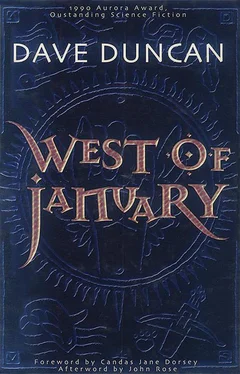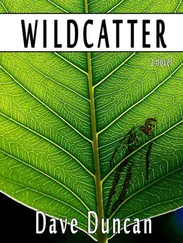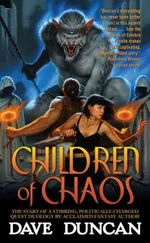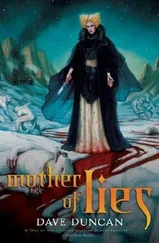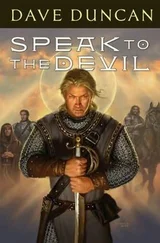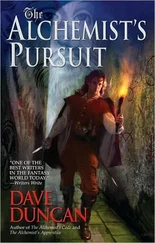Not far into the second leg of our journey we came to a long slope with little snow. I spilled wind from the sails and we glided to a halt. “Time for the wheels,” I said cautiously.
Quetti was picking his teeth with a porcuroo needle. “Go ahead.”
“You are a traditional, first-class, iron-shod bastard!”
“It’s your chariot, Three-red.”
“Slug!”
He smirked.
“Creep!”
He yawned and reached for a book he had brought along, which was strictly against regulations.
“What exactly are you trying to prove?” I asked.
He closed the book and blinked his pale eyes at me.
“You should be an angel. You’re the best. Heaven needs you! But you have a strange inability to appreciate your own accompl—”
“You got that sludge from Michael!”
Quetti grinned. “Long, long ago! In fact, I think it was when he gave me my wheels. He thinks—”
“I know what he thinks! I’ve heard it a hundred times. Michael, you see, could not tolerate the thought that the only son he can ever know is a dumb herdman, a cripple, a coward, and a total failure! So he invented that absurd—”
“Failure?” Quetti lowered his downy eyebrows. “Coward? Spell that! Careless of me not to have noticed!”
“Coward!” I insisted.
“And a failure? You think—”
“YES!” I could shout even louder than he could. Afterward I was to wonder what lived in those woods and what it thought of this argument. At the time I was too furious to think of anything.
“You’re an angel. You’re on your sixth mission, and it will probably kill you. What have I ever done—”
“You saved my life!” Quetti bellowed. He was turning red.
“Then show a little gratitude and shut up!” I said.
And I scrambled down to change skis to wheels.
Quetti smirked again and went back to his book,
Very soon after that we discovered bog—the hard way. That meant winching, a detestable, backbreaking torment. Quetti read his book. I did what was necessary to haul us out of the bog. Muddy, sweaty and weary, I then settled into my seat and glared hard at my companion. He gazed back at me with the same bland wistful innocence that always made girls want to drag him off to bed.
“Explain,” I said through clenched teeth, “in small words, just what you are trying to prove.”
“That you are capable of being as good an angel as anyone.”
“I know that.”
He blinked in surprise. What Quetti would never understand was that it was not the amount of good in a man that matters—for we all have some of that—but the quantity of evil. I have always had more than my share of that.
“I don’t want to be an angel.” I ripped the three red stripes one by one from my sleeve and dropped them overboard. “I never swore the angel’s oath. I never will. I asked you for a ride back to the grasslands, and that’s all I want now.”
Quetti flushed angrily. “My people are going to die, Knobil!”
“Mine are dying already.”
He stared at me blankly, and then all the color ran out of his face. Feeling better, I reached for ropes and brake, and the chariot creaked off down the slope, sails filling. The noise made conversation impossible, and Quetti just sat and stared at me with a very puzzled, very worried expression.
When I needed to rest, though, he took the tiller without a word, and thereafter we had little time for talk. Sailing double shifts, rarely stopping even to visit with the locals, we made double time. Scarlet hill and scarlet sails, a bloody chariot bore death swiftly to the grasslands.
Angel chariots travel alone—to cover more country and to ease the burden on the locals’ hospitality. The shortest route from Heaven to Dawn lay along the borderlands south of the Tuesday Forest, and Quetti had sent some of his troop that way, but to detour northward over Monday’s moors was faster. Northward we went, through country new to me. Blustery cold winds chivied us along. Herds of long-legged wildlife fled away before us over cushioned tundra, darkly green and brightly salted with flowers.
We made good time, yet Vernier is very big. One thing I had not brought from Heaven was a razor. Quetti disapproved of an angel with whiskers, but if mine surprised the ranchers we met, then they were too polite to question. By the time we came to March and began to swing southward, I had a beard I could run my fingers through—perhaps not yet down to herdman standards, but a splendid silver and gold jungle nevertheless.
For the first time I had a chance to practice angel navigation. With chart, compass, theodolite, barometer, and a rough idea of a date, an angel can locate himself well enough to come within sight of any mountain he chooses. Nothing smaller than a mountain makes a reliable landmark. Violet had not needed navigation to find an ocean, so I had been ignorant of it, which was one reason Quetti and I had taken so long to reach Heaven. Now we knew, but our road was easy. We headed west until we were north of the sun, then west-southwest. Soon we were crackling and slapping our way through the immature growth of the early jungle.
Sleep by sleep, the sun rose higher and the heat grew more insufferable. Juvenile woodland faded imperceptibly into endless vistas of waving grasses, and our wheels were green with sap. Quetti became growly and ill-tempered, especially when I made up little songs about the smell of boiled wetlander. He was drowning in sweat, and I, in nostalgia—the scent of grass alone brought tears to my eyes. Cotton trees appeared around the ponds in the hollows, and the green-gold hills rolled away forever under an indigo sky. I was coming home. My heart sang like a choir of flute bats.
When we saw the Urals to the west, faint pale smudges on the horizon, Quetti sighed and said they were beautiful. True wetlanders are all nutty about ice. I merely snorted and turned our course more westward. These ranges had been another hazard for the herdfolk, with the flocks emerging larger and less numerous than they went in. Massacre in the passes was a regular affair in every cycle, but Heaven ignored that violence as an internal herdfolk affair.
These were not the grasslands I had seen with Violet, a hellscape of starving woollies and terrified people crammed like cactuses into a tiny corner of their normal range. Kettle had estimated that two-thirds of the herdfolk had perished in the disaster, and a single generation could hardly have restored their numbers. Quetti and I could go three or four sleeps without seeing a single herd. Woollies leave a grazed track streaked with dung that even a blind snortoise could follow, and yet we saw very few even of those. The landscape was much vaster than I had remembered, and much emptier, and my sense of foreboding grew more deadly.
I was aware of my weakness. If I brooded too long on danger, my resolve would fail. Suddenly I made my decision. I had halted on a hilltop to check our position. When I laid down my almanac, I knew that we were well into the best grazing. A fine little lake sparkled below us, large enough to attract a herdmaster, yet small enough for my sinister intent. The cotton-tree grove was confined to one end of it, leaving the rest without cover: an ideal ambush.
I began pulling off my boots.
Quetti was sitting on one of the bedrolls in the bow. He shoved his hat brim higher and looked at me quizzically.
“This is it,” I said. I opened a chest and took out my pagne. He watched for a moment and then said, “You’re still determined to go through with this madness? Ritual suicide?”
“I’m a herdman. This is my destiny.”
“Shouldn’t you at least wait until we find a suitable herd?”
I frowned, grunting with the effort as I removed my pants. “Ambush the sucker from the chariot, maybe? Seems to me you ought to have oath problems with that idea, angel!”
Читать дальше
